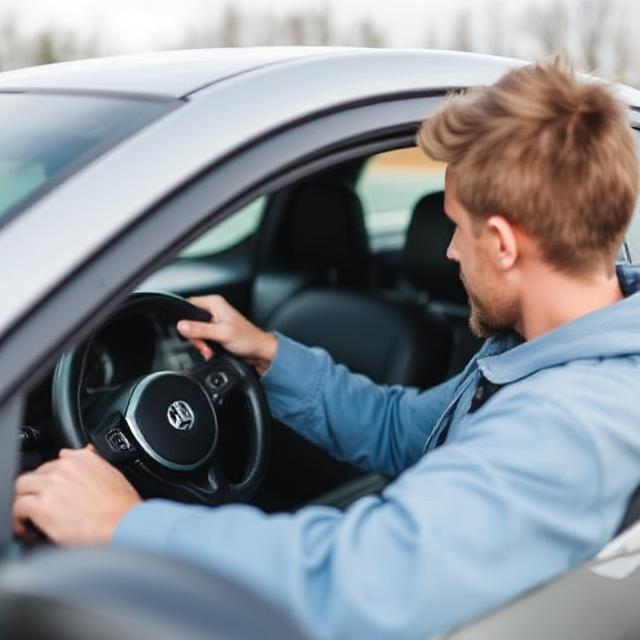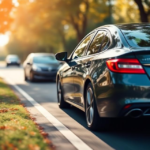Car insurance is often associated with vehicle ownership, but what if you drive a car occasionally without owning one? Whether you rent cars frequently, borrow a friend’s vehicle, or need proof of insurance for legal reasons, non-owner car insurance can provide essential protection. This specialized policy ensures that drivers without a personal vehicle still have liability coverage, reducing financial risk in case of an accident.
Understanding how non-owner car insurance works can help you determine if it’s the right option for your situation. Below are five key facts about this unique type of coverage.
1. Non-Owner Car Insurance Provides Liability-Only Coverage
Unlike traditional car insurance policies that cover a specific vehicle, non-owner car insurance only includes non-owner liability coverage. This means it protects you against financial responsibility if you cause an accident while driving a borrowed or rented car.
Liability coverage typically includes:
- Bodily injury liability – Pays for medical expenses and lost wages for the other party if you’re at fault in an accident.
- Property damage liability – Covers the cost of repairing another person’s vehicle or damaged property.
However, this policy does not cover:
- Damage to the vehicle you’re driving (collision or comprehensive coverage)
- Personal injuries (unless you add medical payments or personal injury protection in some states)
Since it offers only liability protection, non-owner car insurance is more affordable than standard auto insurance policies, making it a budget-friendly choice for occasional drivers.
2. It’s Ideal for People Who Frequently Rent or Borrow Cars
One of the main reasons drivers purchase non-owner car insurance is to have insurance for car renters or people who regularly borrow vehicles. While rental car companies offer insurance at the counter, these options can be expensive and inconsistent. A non-owner policy ensures that you always have liability coverage, no matter which rental company you use.
This policy is also useful for individuals who frequently borrow cars from friends or family members. Instead of relying on the owner’s insurance, which may not fully protect you, non-owner insurance provides peace of mind and financial security.
3. It Helps You Maintain Continuous Insurance Coverage
Having gaps in car insurance history can lead to higher premiums when you eventually buy a vehicle and need a full-coverage policy. A non-owner policy keeps your insurance record active, which can help you qualify for lower rates in the future.
This is particularly beneficial for:
- Drivers between cars who don’t want a lapse in coverage
- People temporarily without a vehicle but planning to purchase one soon
- Individuals who previously had car insurance and want to maintain a continuous record
By keeping an active policy, you demonstrate responsibility to insurance companies, potentially earning lower premiums when switching to a standard auto insurance plan.
4. Non-Owner SR-22 Policies Help Reinstate Suspended Licenses
Some drivers need non-owner SR-22 policies to reinstate their suspended licenses. An SR-22 is a form filed with the state to prove that a driver carries the required minimum liability coverage. This requirement typically applies to individuals with:
- DUI or DWI convictions
- Multiple traffic violations
- Uninsured driving offenses
Since drivers in these situations may not own a car, a non-owner SR-22 policy allows them to meet legal requirements without needing a full-coverage policy for a specific vehicle. This can be the most affordable way to restore driving privileges while fulfilling state insurance mandates.
5. It’s One of the Most Affordable Insurance Options Available
For individuals who don’t own a car but still need coverage, affordable non-owner auto insurance is an excellent option. Because these policies only include liability protection and do not cover physical damage to a vehicle, they tend to be significantly cheaper than traditional car insurance.
The exact cost of a non-owner policy depends on:
- Driving history – A clean record will result in lower rates, while violations or past claims can increase costs.
- Coverage limits – Higher liability limits provide better protection but come with higher premiums.
- Location – Insurance rates vary based on state requirements and risk factors.
For drivers looking for temporary liability insurance—such as those in between vehicles or needing proof of coverage for work or legal reasons—this is one of the most cost-effective solutions.
Summary
Non-owner car insurance is a valuable option for individuals who don’t own a vehicle but still need liability protection. It provides non-owner liability coverage, ensuring that drivers are financially protected if they cause an accident while renting or borrowing a car. This type of policy is especially beneficial for frequent renters, those wanting to avoid coverage gaps, and individuals needing non-owner SR-22 policies to reinstate their licenses. Additionally, it is a low-cost insurance solution, making it an attractive alternative to standard auto policies.
By understanding these five key facts, drivers can determine whether non-owner car insurance is the right choice for their situation and take advantage of its affordability and flexibility.


